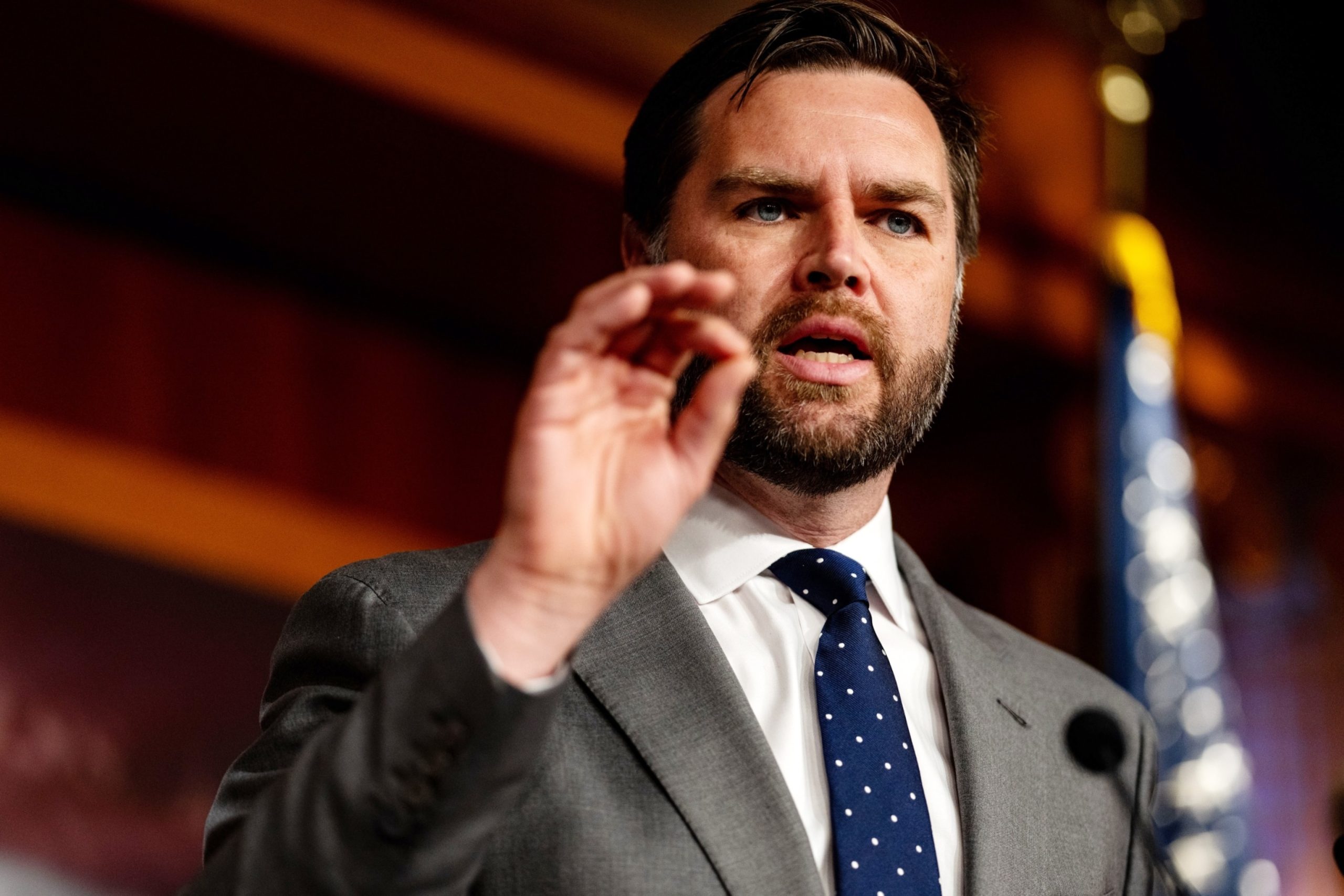
A Deep Dive into Typical IVF Costs: What You Need to Know Before Starting Your Journey
April 16, 2025J.D. Vance’s Stance on IVF: What You Need to Know
When you hear the name J.D. Vance, you might think of Hillbilly Elegy, his bestselling book turned movie, or his role as Donald Trump’s vice-presidential running mate in 2024. But there’s a lot more to this Ohio senator—especially when it comes to his views on in vitro fertilization (IVF). IVF is a hot topic today, with families, lawmakers, and even celebrities weighing in. So, where does J.D. Vance stand on this issue? And what does it mean for people hoping to start a family? Let’s dive into his position, uncover some lesser-known details about his life, and explore how his stance affects everyday folks like us.
This isn’t just another dry political rundown. We’ll peel back the layers—looking at Vance’s voting record, his personal quirks, and even what science says about IVF today. Whether you’re a fan, a critic, or just curious, stick around for a deep, friendly look at a topic that’s more personal than you might think.
What Is IVF and Why Does It Matter?
IVF, or in vitro fertilization, is a medical process where doctors combine an egg and sperm outside the body, then place the resulting embryo into the uterus. It’s a lifeline for millions of couples struggling with infertility—about 1 in 8, according to the CDC. In 2021 alone, over 100,000 babies were born in the U.S. thanks to IVF. That’s a lot of little miracles!
But IVF isn’t just about science—it’s tangled up in politics, religion, and personal beliefs. Some see it as a gift to families; others worry about the ethics of creating embryos in a lab. J.D. Vance’s stance sits right in this messy mix, and it’s worth understanding because it could shape laws affecting millions.

J.D. Vance’s Public Stance on IVF: The Basics
At first glance, Vance seems to support IVF. In interviews, he’s said things like, “Babies are good, families are good,” and “I want there to be as much access to fertility treatment as possible.” Sounds pretty straightforward, right? He even co-sponsored the IVF Protection Act in 2024, a Republican bill that would block states from banning IVF by tying it to Medicaid funding.
But here’s where it gets tricky: Vance has also voted against bills that would guarantee IVF access nationwide. In June 2024, he said no to the Right to IVF Act, a Democrat-led effort to make IVF a federal right. Then, in September 2024, he skipped a Senate vote on a similar bill altogether—opting for a campaign rally instead. So, is he for it or against it? Let’s break it down.
The “Yes” Side: Vance’s Pro-IVF Moments
- Words of Support: Vance has repeatedly said he’s “pro-fertility treatments.” In a 2024 chat with Megyn Kelly, he added, “We want to make it easier for moms and dads to choose life.”
- The IVF Protection Act: This bill he backed would punish states that ban IVF by cutting their Medicaid cash. It’s a practical step, even if it doesn’t go as far as some want.
- Personal Spin: Vance often ties his stance to family values, hinting at a softer side. He’s a dad of three, after all—maybe that’s why he says “babies are a profound moral good.”
The “No” Side: Votes That Raise Eyebrows
- June 2024 Vote: Vance joined most Senate Republicans to block the Right to IVF Act. Critics say this shows he’s not fully on board with unrestricted IVF access.
- September 2024 No-Show: Skipping the vote didn’t help his case. Some saw it as dodging a tough choice—especially since Trump was pushing IVF hard on the campaign trail.
- Past Ties: In 2017, Vance wrote the foreword for a Heritage Foundation report that slammed IVF as part of a “delay in family-building.” He’s since distanced himself, but it’s a red flag for some.
So, what’s the deal? Vance seems to like IVF in theory but hesitates when it comes to big federal rules. He’s said he’s all about “religious liberty,” meaning he doesn’t want Christian hospitals forced to offer IVF if it clashes with their beliefs. It’s a balancing act—supporting families while keeping his conservative base happy.
Behind the Scenes: What Shapes Vance’s Views?
To really get Vance’s stance, we need to peek into his world. What’s he like off the podium? How do his roots and quirks play into this? Here’s the scoop on the man behind the politics.
From Appalachia to the Senate
Vance grew up in Middletown, Ohio, with a rough-and-tumble childhood detailed in Hillbilly Elegy. Raised by his grandma (“Mamaw”), he faced poverty, addiction in his family, and a gritty Appalachian culture. That upbringing shaped his focus on family—he’s said it’s why he cares about “social capital” like marriage and kids.
Fun fact: Vance wasn’t always a big shot. He worked as a cashier at a grocery store as a teen, dreaming of something bigger. Now, he’s a senator with a wife, Usha, and three kids: Ewan, Vivek, and Mirabel. Family’s clearly his thing—but does that mean he’s all-in on IVF?
Hobbies and Hidden Passions
Vance isn’t just a suit. He’s got a nerdy side—think comic books and video games. He’s admitted to loving The Lord of the Rings and even named his German shepherd “Aragorn” after the epic hero. Why’s this matter? It shows he’s got a softer, imaginative streak—not just a hardline politico.
He’s also a Catholic convert, joining the church in 2019. That faith could nudge his IVF views, since some Catholics worry about embryos being discarded in the process. But Vance hasn’t leaned hard into that—he’s more about practical politics than preaching doctrine.
The Usha Factor
His wife, Usha Chilukuri Vance, might be a quiet influence. She’s a lawyer with Indian roots, and they met at Yale Law School. They’ve got a tight-knit family vibe—Usha’s even campaigned with him, juggling toddler duty. Could her perspective as a mom sway his IVF stance? We don’t know for sure, but it’s a personal angle worth wondering about.
The Bigger Picture: IVF in Vance’s Political World
Vance doesn’t exist in a vacuum. His stance ties into bigger debates rocking the U.S. Let’s zoom out and see how IVF fits into his political playbook.
The Trump Connection
As Trump’s VP pick in 2024, Vance has to sync up with the boss. Trump’s gone big on IVF lately, promising to make it free via government or insurance if he wins. That’s a shift from his earlier quiet-on-the-issue days—probably because the Alabama Supreme Court’s 2024 ruling (calling embryos “children”) freaked out voters.
Vance has cheered Trump’s pivot, saying it’s “ridiculous” to think conservatives would ban IVF. But his votes tell a different story. Is he just playing team player, or does he really buy into Trump’s new tune?
The Conservative Tug-of-War
Here’s the rub: Some Republicans love IVF (it’s pro-family!), but others hate it (those extra embryos can get destroyed). Vance is stuck in the middle. He’s backed bills to protect IVF access but dodged ones that lock it in nationwide. Why? Maybe he’s dodging a fight with the anti-IVF crowd—like the Heritage Foundation folks he’s cozied up to in the past.
Dr. Eve Feinberg, a fertility expert at Northwestern University, puts it this way: “IVF is fundamentally ‘pro-life’ in that it helps couples have children that would otherwise not be born.” Vance might agree—but only if it fits his “states’ rights” vibe.
What’s at Stake?
If Vance and Trump win in 2024, their policies could sway IVF’s future. A national ban seems unlikely (Vance says Trump would veto it), but state-level rules could tighten. Think Alabama’s embryo ruling times ten. For families, that’s a big deal—IVF costs $12,000–$20,000 per cycle, and restrictions could make it even harder to swing.

Digging Deeper: The Science and Stats Behind IVF
Let’s get nerdy for a sec. What does the latest research say about IVF? And how might Vance’s stance mesh with the facts?
IVF By the Numbers
- Success Rates: Per the American Society for Reproductive Medicine (ASRM), about 30–35% of IVF cycles lead to a live birth for women under 35. That drops with age—down to 10% for women over 40.
- Embryo Reality: Most cycles create multiple embryos, but not all get used. In 2021, the CDC says about 20% of embryos were discarded or donated. That’s the ethical snag for some conservatives.
- Cost Crunch: Without insurance, IVF’s a wallet-buster. Only 19 states mandate coverage, leaving many families scrambling.
New Research Highlights
A 2023 study from the Journal of Assisted Reproduction found IVF kids are just as healthy as naturally conceived ones—debunking old myths about “test-tube babies.” Plus, techniques like preimplantation genetic testing (PGT) are cutting miscarriage rates by spotting healthy embryos early.
Dr. Brian Levine, a New York fertility doc, told NBC, “Whenever someone thinks they’re doing fertility treatments, they think automatically they’re doing IVF.” That mix-up might explain why Vance’s stance feels fuzzy—he’s navigating a complex field with lots of gray areas.
Practical Tips for Families
If you’re eyeing IVF, here’s a quick guide based on the latest:
✔️ Shop Around: Clinics vary—success rates, costs, even vibe. Check ASRM’s database for stats.
✔️ Ask About PGT: It’s pricier but can boost your odds.
❌ Don’t Skip Insurance Homework: Some plans cover parts (like meds)—dig into yours.
❌ Avoid Rushing: One cycle might not cut it. Plan for 2–3 tries if you can.
Vance’s Stance vs. Real Life: Stories That Hit Home
Numbers are great, but stories stick. How does Vance’s position play out for regular people? Let’s meet a few.
Sarah’s Struggle
Sarah, a 32-year-old from Ohio, spent $15,000 on IVF after three years of trying naturally. “It was our last shot,” she says. Her daughter, Lily, was born in 2023. But when Alabama’s ruling hit, Sarah panicked. “What if Ohio goes next? Vance says he’s for IVF, but his votes make me nervous.”
Mark and Jen’s Debate
Mark and Jen, a Cincinnati couple, disagree on Vance. Mark likes his “family-first” talk: “He gets that kids matter.” Jen’s skeptical: “He skipped that vote! If he cared, he’d show up.” Their twins came via IVF, and they’re watching the news closely.
These folks aren’t alone. A 2024 ABC News poll found 80% of voters want IVF to stay legal. Vance’s waffling could clash with that big-time.

What Could Happen Next? Predictions and Possibilities
So, where’s this all headed? Let’s play fortune-teller with some educated guesses.
Scenario 1: Status Quo Stays
If Vance and Trump win but stick to “states’ rights,” IVF might keep chugging along—legal here, tricky there. Families in red states could face more hurdles, though.
Scenario 2: Big Changes Brew
Say a conservative wave pushes “fetal personhood” laws (like Alabama’s). IVF could get messy—clinics might pause, costs could spike. Vance’s “pro-IVF” talk would be tested fast.
Action Steps for You
No matter what, here’s how to stay ahead:
- Follow Local Laws: Check your state’s IVF rules—they’re shifting.
- Save Smart: Start a fund if IVF’s in your future—every bit helps.
- Speak Up: Tell your reps you care about IVF access. They listen (sometimes!).
Dr. Karen Tang, a gynecologist, says, “IVF’s success rate beats IUI, but it’s not a sure thing.” Planning ahead’s your best bet.
Wrapping It Up: What Vance’s Stance Means for Us
J.D. Vance’s IVF stance is a puzzle—part support, part sidestep. He’s a family guy with a nerdy streak, rooted in a tough upbringing, and juggling faith, politics, and Trump’s playbook. He says he’s for IVF but votes like he’s not sold on locking it in. For families, that’s a rollercoaster—hope one minute, worry the next.
The science backs IVF’s power, and real stories show its heart. Whether Vance’s moves help or hurt, one thing’s clear: this debate’s not going away. It’s about more than politics—it’s about dreams, babies, and what “family” means in 2025.
Let’s Chat!
What do you think of Vance’s stance? Are you an IVF family with a story to share? Drop a comment below—I’d love to hear your take! Or, if you’re just here for the Lord of the Rings vibes, tell me: Team Aragorn or Team Frodo? Let’s keep the convo going!
